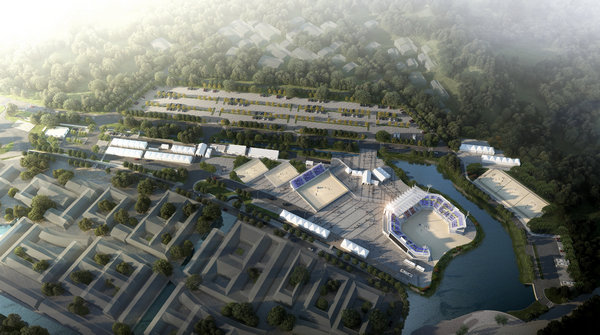

Hangzhou has launched a Green Asian Games by preparing its competition venues to aid in the improvement of the city's air quality and attain sustainable development as China rolls out the road map for peaking carbon emissions by 2030.
A special team, consisting of "zero-carbon" engineers, has been established to reduce energy consumption and carbon dioxide emissions and provide services for venues such as green power supply, energy-saving renovation, and smart energy.
These engineers are from State Grid Hangzhou Power Supply Company and they are expected to provide 13 professional services during the Games, including the construction of zero-carbon transportation and the trade of green electricity for the venues.
The power will come from clean energy, which will be transferred by the UHV grid (ultra-high voltage grid) for the Hangzhou Asian Games venues and Asian Games Village from hydropower in the Liangshan Yi autonomous prefecture in Southwest China's Sichuan province and wind power and photovoltaics in the northwestern Ningxia Hui autonomous region and the Xinjiang Uygur autonomous region.
Besides the primary host city Hangzhou, which will host the largest number of events during the Games, five other neighboring cities have also stepped up their green energy capabilities.